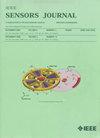Adaptive Energy-Efficient Clustering Mechanism for Underwater Wireless Sensor Networks Based on Multidimensional Game Theory
IF 4.3
2区 综合性期刊
Q1 ENGINEERING, ELECTRICAL & ELECTRONIC
引用次数: 0
Abstract
Efficient and reliable clustering mechanisms play a crucial role in enhancing the energy management efficiency of underwater wireless sensor networks (UWSNs). In recent years, game theory has been widely applied in clustering mechanisms for its ability to provide theoretical support in optimizing strategies. However, existing game theory-based clustering mechanisms only analyze the current cooperation and competition relationships of nodes in a single dimension, which limits the efficient energy utilization of the network. To address these limitations, this article proposes an adaptive energy-efficient clustering mechanism for UWSNs based on multidimensional game theory (MDGTC). During the candidate cluster head (C-CH) nodes selection, MDGTC enhances the opportunity of the potential optimal CH node to act as C-CH again by establishing a multidimensional clustering game model. Subsequently, an adaptive CH competition mechanism is introduced to further optimize the CH selection strategy by considering the energy and energy consumption status of local nodes and global networks. In addition, by combining a hierarchical architecture and a hybrid CH rotation mechanism, the stability of the proposed model is ensured, leading to a more balanced energy consumption among network nodes. In conclusion, MDGTC offers an effective distributed energy management architecture for UWSNs. The simulation results show that the MDGTC can achieve efficient energy utilization and prolong the network lifetime significantly.基于多维博弈论的水下无线传感器网络自适应节能聚类机制
高效可靠的聚类机制在提高水下无线传感器网络(UWSN)的能源管理效率方面发挥着至关重要的作用。近年来,博弈论因其能够为优化策略提供理论支持而被广泛应用于聚类机制中。然而,现有的基于博弈论的聚类机制只能从单一维度分析节点当前的合作与竞争关系,限制了网络能量的有效利用。针对这些局限性,本文提出了一种基于多维博弈论(MDGTC)的 UWSN 自适应高能效聚类机制。在候选簇头(C-CH)节点选择过程中,MDGTC 通过建立多维聚类博弈模型,提高潜在最优 CH 节点再次担任 C-CH 的机会。随后,引入自适应 CH 竞争机制,通过考虑本地节点和全局网络的能量和能耗状况,进一步优化 CH 选择策略。此外,通过结合分层架构和混合 CH 轮换机制,确保了所提模型的稳定性,从而使网络节点之间的能耗更加均衡。总之,MDGTC 为 UWSN 提供了一种有效的分布式能源管理架构。仿真结果表明,MDGTC 可以实现高效的能量利用,并显著延长网络寿命。
本文章由计算机程序翻译,如有差异,请以英文原文为准。
求助全文
约1分钟内获得全文
求助全文
来源期刊

IEEE Sensors Journal
工程技术-工程:电子与电气
CiteScore
7.70
自引率
14.00%
发文量
2058
审稿时长
5.2 months
期刊介绍:
The fields of interest of the IEEE Sensors Journal are the theory, design , fabrication, manufacturing and applications of devices for sensing and transducing physical, chemical and biological phenomena, with emphasis on the electronics and physics aspect of sensors and integrated sensors-actuators. IEEE Sensors Journal deals with the following:
-Sensor Phenomenology, Modelling, and Evaluation
-Sensor Materials, Processing, and Fabrication
-Chemical and Gas Sensors
-Microfluidics and Biosensors
-Optical Sensors
-Physical Sensors: Temperature, Mechanical, Magnetic, and others
-Acoustic and Ultrasonic Sensors
-Sensor Packaging
-Sensor Networks
-Sensor Applications
-Sensor Systems: Signals, Processing, and Interfaces
-Actuators and Sensor Power Systems
-Sensor Signal Processing for high precision and stability (amplification, filtering, linearization, modulation/demodulation) and under harsh conditions (EMC, radiation, humidity, temperature); energy consumption/harvesting
-Sensor Data Processing (soft computing with sensor data, e.g., pattern recognition, machine learning, evolutionary computation; sensor data fusion, processing of wave e.g., electromagnetic and acoustic; and non-wave, e.g., chemical, gravity, particle, thermal, radiative and non-radiative sensor data, detection, estimation and classification based on sensor data)
-Sensors in Industrial Practice
文献相关原料
| 公司名称 | 产品信息 | 采购帮参考价格 |
|---|
 求助内容:
求助内容: 应助结果提醒方式:
应助结果提醒方式:


